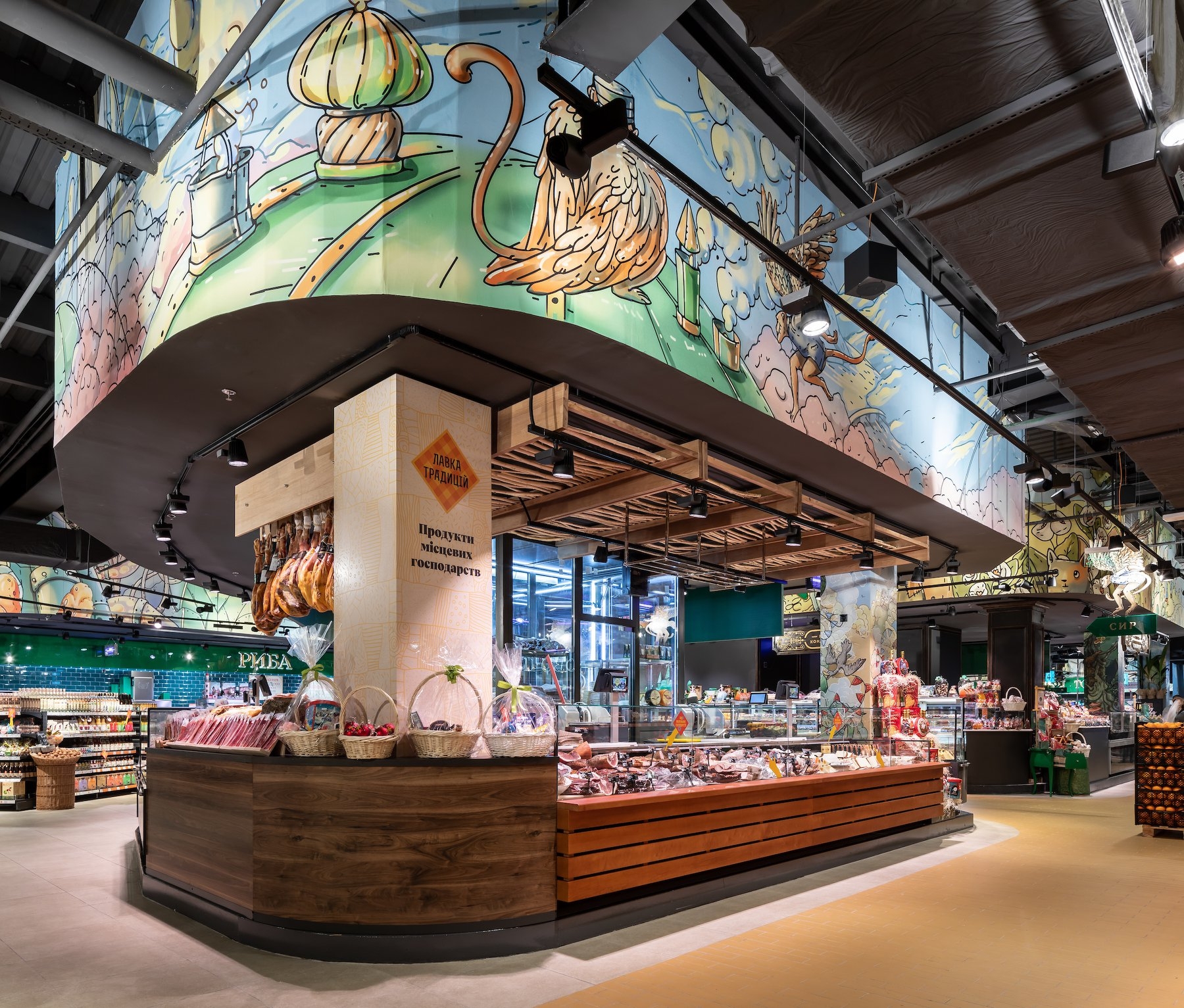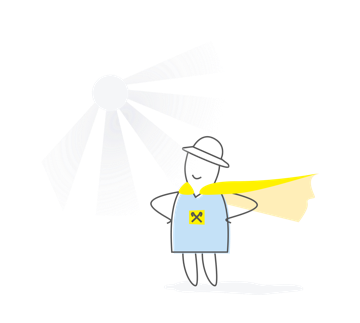Local manufacturers in large networks
Almost every farmer or small business owner dreams of selling products in large supermarkets. But there is an opinion that getting there is not so simple. We found out whether this is so, and what are the programs to support local manufacturers.
Finding consumers and new sales channels is no easy matter. But cooperation with large retail chains can facilitate this task, because it allows you to access a stable flow of customers and sell large volumes of products.
About specifics of cooperation firsthand
“It is not easy for small businesses to reach large trading companies. The most difficult thing is to start cooperation with the first network. Subsequently, information about working with a major partner facilitates negotiations, ”Oleg Gritsinyak, co-founder and executive director of the English Student publishing house, shares his life hack. - You should calculate the price, quantity of assortment, first outlets well. The success of working with the network in the future depends on this.”

“First of all, you need to strategically determine whether you need to sell through networks and for what purpose. Because selling products through their own points, on the Internet, you are responsible to the buyer directly. A large trading company assumes joint responsibility with you for the quality and safety of your product. And it will require relevant documents, technological processes that provide them. In the case of food, networks will require HACCP, the implementation of which requires significant investment. In addition, there are definitely competitor products or offal on the shelves of the chain’s stores, so you need to understand why the buyer should pay attention to your product. This is a matter of branding and marketing strategy in general. In addition, it is necessary to ensure the timely delivery of the required amount of products, the replacement of expired ones, the maintenance of a team of merchandisers, logistics, etc., ”concludes the founder of the Vognyar spicy sauces brand, Valentin Kalashnik.
“After entering the network, you need to check the prices of goods and the correctness of the trading floor. It happens that sometimes the agreement does not correspond to the actual situation. There are many reasons: the manager changed his mind, the store decided differently, the human factor. All this affects sales. We solve this problem by avoiding the stores where our products are sold poorly, ”says Oleg Gritsinyak.
“It is believed that the margin of the retail network is 15-30%. But you need to understand that the manufacturer pays the network several special bonuses - marketing, logistics, retro. The result is 20-25%. They can be paid at the time of delivery of the goods, when the manufacturer has not yet received any income, ”says Valentin Kalashnik about the specifics of pricing. - It is important to calculate the most effective way of distributing products to the store. It can be own or hired transport, courier, etc. Or work through the distribution center of the network. Such an option in various networks ranges from 1.5% to 8% of the cost of production."
Large to small
Large domestic and international trading companies are also trying to establish cooperation with local producers and farmers. Moreover, they even develop special programs. Almost the very first in this direction the Silpo network began to operate. In 2011, she launched the direction of natural products from local agricultural enterprises “Tradition Shop”. Today, the project collaborates with 140 small Ukrainian farms that sell their products in more than 70 Silpo supermarkets. The network relies on food startups and small businesses. Many of them are found by project managers themselves. If necessary, they help to develop appropriate technical conditions, improve the recipe, draw up documents, sometimes even initiate the release of new products, and also work on product branding (design development, stickers, etc.) and promotion. Today, the “Shop of Traditions” presents several thousand positions of craft products: from meat and cheese to juices and desserts.
Much attention is paid there to quality control. The Silpo team, together with representatives of the network quality department, travels to enterprises. The audit is carried out on 68 points of the checklist of the State Food and Beverage Service - from industrial hygiene and uniform to various laboratory tests. Products are taken for independent analyzes, where they check safety, naturalness, lack of preservatives and additives. Residents of the “Shops of Traditions” receive loyal financial conditions for selling products in a supermarket. They do not have requirements for minimum volumes of supplies.
Since 2017, True & Local festivals have been held at Silpo in Kiev, Dnipro, Odessa and Lviv, weekly tastings at the Producer Treats supermarkets have been organized. These measures allow new food startups to present their products, see how guests perceive them, and present new products.
In the fall of 2019, another project was launched - Agromandra: farm trips to the residents of Lavka. There, guests can personally see not only how products are grown and made, but also try to be a producer, for example, make mozzarella, collect tea, go down to the cheese ripening chamber and coat cheese heads.
For those who want to launch their gastroproject, in 2019, the “Shop of Traditions” launched a large training program “Food Enlightenment”. Experts in all areas of gastronomy are giving lectures there. The most successful graduates get the opportunity to carry out test sales in the Silpo network.
Auchan hypermarket chain is developing the project “Farm Products”. They rely on organic products of various categories. Auchan has requirements for each of them - procedural and technical. Another feature is the mandatory audit of the enterprise to verify the quality and safety of products. But there are pitfalls - a frequent change in procurement prices.
In 2016, the METRO Cash & Carry Ukraine hypermarket chain, in collaboration with the world-wide producer of agricultural seeds Syngenta Ukraine, launched the Fermove project. Its goal is to support domestic farming and a healthy eating culture by purchasing vegetables, fruits and greens from farmers. In the harvest season, their share in the Vegetables and Fruits department is 50%.
To become a participant in the project, you need to comply with European standards: have documentation confirming the quality of products, comply with all cultivation and transportation technologies. For its part, METRO provides training for participants in the Fermove project on quality standards and supports them with a variety of marketing campaigns.
Successful cooperation with large supermarkets
5 life hacks from Valentin Kalashnik
1. Determine the purpose of presence in a particular network - to earn or reduce costs by increasing production volumes.
2. Calculate in detail all the costs associated with the presence in the network: logistics, providing the necessary quantity of goods on the shelf, payment of various network bonuses and the like.
3. Networks are individual stores where people with different food needs go. A list of outlets at which it is advisable to present their products should be determined.
4. Before negotiating with a buyer, clearly determine what your product is on the network for: what is its uniqueness and whether it exists at all.
5. Independently monitor the availability of products on the shelves. Not all networks provide the merchandising process equally well.
5 life hacks from Oleg Gritsynyak
1. Enter large networks when the business is stable and has sufficient working capital to increase accounts receivable.
2. Read the cooperation agreement well, as there are many marketing boards that are unprofitable for a small volume of sales.
3. Agree on a minimum order for one outlet.
4. Install a separate stand with products. This works best.
5. Large networks - "long" money. You need to have a larger stock of products and be prepared for deferred payments.
Oleg Gritsinyak, co-founder and CEO of English Student
Our profile is the development and manufacture of cards for learning foreign languages. Today, our products are sold in more than 300 outlets. Among them are Silpo, Auchan, Epicenter, NOVUS.
It is not easy to enter large networks on your own to a small brand. We are fortunate to have a good relationship with the Publishing House of the Old Lion (ISL). At one of the book exhibitions, friends with ISL introduced us to representatives of the Epicenter and Auchan. The manager from the Epicenter was immediately interested in our products. And for a month she was already on the shelves of 4 retail outlets of the network, and today at 13.
But getting into the Auchan was not so easy. First, they were refused because of the high price, then due to the lack of an appropriate legal entity (LLC). In addition, we did not fit into the logistic parameters: orders for each outlet here are accepted only in pallets. For us it is unprofitable. And a solution was found: we went through the distributor. Now our products are presented in 4 stores. We are negotiating to increase the range.
Negotiations with NOVUS led almost a year. They constantly called, reminding of themselves. When the network expanded the range in our category, they remembered us.















